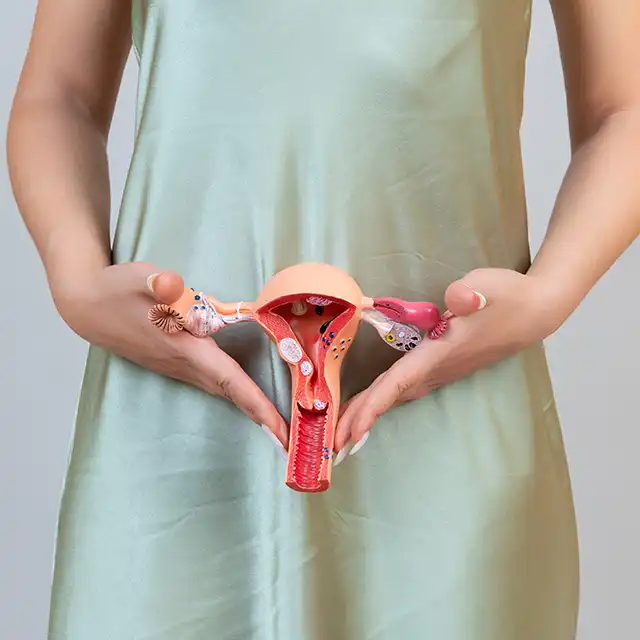
Migraine is a brain condition characterised by throbbing or pulsating headaches that can be of moderate to severe in intensity. The condition is life-long and usually occurs in one area of the brain but can shift to different parts or all over. These headaches can last for a few hours to days and can be debilitating for individuals who have them.
We don’t fully understand the mechanism that causes migraines, but it is thought to be caused by the brain producing inflammatory substances that induce pain in the nerves and blood vessels contained within it. This can be triggered by several factors such as stress, anxiety, weather change, hormonal changes, bright or flashing lights, certain medications, a lack of sleep and certain things ingested through diet.
If an individual is susceptible to one or more of these factors, they may tend to have recurring migraine attacks. Twice as many women suffer from migraines than men, which is understood to be linked with higher incidence of hormonal changes during menstruation or pregnancy, according to the World Health Organisation.
Individuals can start having migraine attacks in early adulthood, but the condition is most prevalent among people aged between 35 and 45 years.
Symptoms
The symptoms of migraines are pulsating or throbbing headaches which usually occurs in one side of the brain, lasting for a few hours to days. However, the pain can also switch sides or affect both sides simultaneously.
Excessive sweating, poor concentration, feeling hot or cold, abdominal pain and diarrhea are some additional symptoms that can be caused following onset of the headache. But some individuals can have these symptoms even without having a headache.
The symptoms of a migraine can be divided into four stages, although not everyone will experience all four stages:
- Prodromal or the “pre-headache” stage is experienced several hours to three days before the onset of a migraine attack, with symptoms including mood changes such as depression or hyperactivity, constipation, low energy levels, frequent yawning, neck stiffness, and changes to one’s appetite.
- Aura is the stage that occurs just before or during a migraine attack that can last for just a few minutes to an hour. This stage is characterised primarily by vision problems – flashing of lights, experiencing blind spots, and distortion of vision – followed by needling pain or numbing of arms and legs, weakness in the limbs and difficulty speaking.
- Headache or migraine attacks are the next stage characterised by throbbing or pulsating pain and can be accompanied by nausea, extreme sensitivity to bright lights and loud sounds. This often prompts individuals suffering from an attack to lay in a silent and dark room, until the pain seizes which can take upto three days.
- Postdrone or the recovery phase is experienced after a migraine attack, during which a person can feel extremely tired and exhausted and can last for one to two days.
Causes
The exact cause of migraines is not known yet. However, it is thought to be triggered by one or more factors such as stress, anxiety, weather change, hormonal changes, bright or flashing lights, certain medications, lack of sleep, and certain dietary constituents. These are thought to trigger an unknown mechanism deep inside the brain that causes it to produce inflammatory substances that cause pain in the nerves and blood vessels.
Diagnosis
No specific tests exist to diagnose migraines; however, a neurologist can make an assessment based on the pattern of one’s headaches, how long they last, family history of migraines, and symptoms experienced before and after the headaches. Doctors may also perform a magnetic resonance imaging (MRI) or computerised tomography (CT) scan to rule out any other causes of the headaches.
Treatment
Since the cause of migraines is yet to be fully understood, we lack targeted treatments and cures for them. Instead, migraines are managed with medicines that prevent attacks and relieve symptoms during an attack.
- Drugs such as Erenumab, Lasmiditan and Ubrogepant are some medications approved by the US Food and Drug Administration (FDA) to prevent migraine attacks. Medications used to treat hypertension, epilepsy, and depression are also seen as being effective in preventing migraine attacks in testing.
- For relieving symptoms before or during an attack, over-the-counter pain relievers such as Paracetamol, Aspirin and Ibuprofen can be used, apart from prescription pain relievers such as Triptans and Opioids, or anti-nausea medications such as Chlorpromazine and Metoclopramide can be used.
One of the smart ways that an individual can avoid migraine attacks is to log all its triggers and then avoid them. They may also be advised to avoid hormonal therapy during their menstrual cycle, and changing their sleep schedule or dietary considerations.
Sources

















